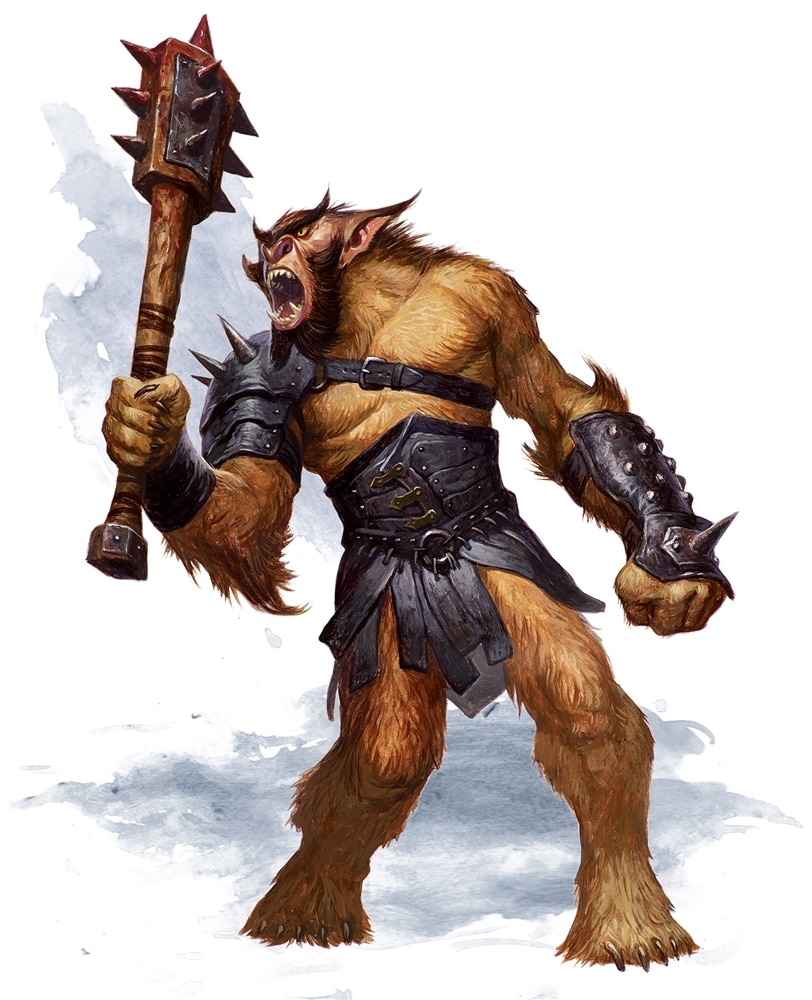First off, it needs to be said that I love my Dungeons and Dragons 5E group. It’s the only group I’ve ever played with, and I’ve known all these guys for 9 or 10 years. The opportunity to eat, drink and be merry with these men is well worth whatever excuse we come up with to make it happen.
Even still, we may have crashed our own D&D party from the beginning, and I mean “crash” as in “oh dear, we’ve crashed our car into our own mailbox.”

Our first campaign was a shorter effort with a first-time DM at the helm, which left three experienced players to lead the way for two newbies, myself included. Earth Nerd Adkins was a member of our party, and he essentially became a de facto leader of the group. His character was written as such, and he has enough role-playing ability in his toolbox to carry that mantle well. What’s more, his leadership helped create some RP schticks that allowed others to get involved. For instance, my dragon-born barbarian was the perfect foe for “impromptu” wresting matches against his bugbear fighter that earned us free lodging.
That campaign ended, though, and Adkins became the DM for our new Storm King’s Thunder campaign. As I imagine many groups do, we all set off separately to create our characters and write backstories, which Adkins wove into his own narrative. What we players didn’t do was come into that process with enough group intentionality.
Mistakes Were Made
As such, we’ve created an amalgamation of characters that don’t really have much reason to interact. We came together by chance in this story, and no one really wrote a character with a reason to lead the way.
My dwarf fighter, for instance, has wandered alone for several years now, seeking to restore his own perceived honor after a military defeat. Regardless of whether or not I have the role-playing chops to step in and drive the non-combat action, I just flat don’t think that’s how my character would act. He’s the type who walks along with little interaction, smoking his pipe and looking for fights from which he can derive honor. As such, he can be very decisive on his own account, but I just don’t think he’d be the one rounding up a gang of magicians and rogues to search a city for the next story point.
And that “non-combat action” phrase is key because our combat usually goes well. My dwarf rushes into action, usually at the largest or most important target in range, while the magic types line up their attacks and the ranged warriors take aim from their chosen perches. But when it comes time to step into a city or converse during travels, we don’t have a ton of direction other than what we know from the DM.
How We Could’ve Avoided Trouble
It’s key here to return to the initial analogy of a car that crashed into a mailbox. Our campaign still runs, and we get from Point A to B to C, clearing out whatever baddies we need to along the way. But our ride isn’t as smooth, enjoyable and aesthetically pleasing as it probably could be, and that’s because of something we did before we even got started.

To prevent that, we would’ve needed to recognize our group’s real-life personalities and skills in gameplay. I’m the biggest talker in the group, and among the least skilled in the more technically involved aspects of the game like preparing and casting spells. It would’ve made things a lot easier if I had dreamed up a character that was more of a natural leader so I could’ve brought more to the group when we weren’t in the middle of a band of goblins.
Others could’ve made similar choices, electing to go with less of a loner since our natural leader from the first campaign was now behind the DM screen. Or we could’ve been more intentional about finding early events in the campaign to bond over so that our characters had more reason to connect. Even when we did that, it manifested itself in an unspoken bond between two fighters who preferred to keep to themselves. My character and a halfling trusted each other in decision-making, but we didn’t spend time swapping stories, and then the storyline carried her elsewhere anyway.
Lessons Learned
At this point, we’ve established who we are. We don’t talk much on the road, and when conflict arises, we all respond in our own way and just see how it works out. So far, the good guys – or chaotic neutral guys, in my case – have mostly come out on top despite a lack of true cohesion. So unless one of our characters meets his end, there’s not much we can do to change the dynamic for this campaign without forcing things.
But for me, the lesson in the future is to think as much about the makeup of the campaign group as I do about what character quirks and weapons I want for my own sheet. The game is much more fun when there are meaningful or even just silly things going on between battle sequences.
I’ve had a ton of fun flinging handaxes at whatever moves, don’t get me wrong. But I want our next campaign to be one that maximizes the role-playing experience, and to do that, we need to avoid the mailbox this time.

